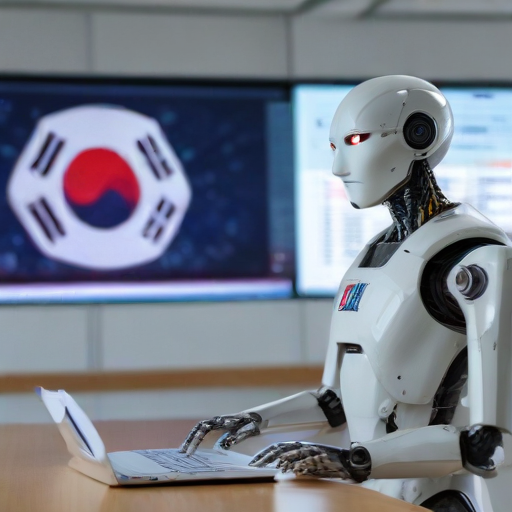Bank of America analysts have noted that South Korea is among the few economies experiencing a productivity increase attributed to artificial intelligence (AI). However, potential U.S.-China tensions surrounding semiconductor trade could pose risks to this growth.
According to a Bank of America Global Research report, the semiconductor industry constitutes 17% of South Korea’s exports, and the nation has emerged as a significant beneficiary of the AI surge, with exports rising more than 50% year-over-year. Analysts remain optimistic about South Korea’s long-term prospects, citing substantial investments in AI research and development as well as a rise in AI-related patents, which they believe will enhance the country’s role in AI adoption.
Nevertheless, these analysts caution that escalating geopolitical tensions, particularly between the U.S. and China, might affect the semiconductor supply chain crucial for South Korea’s AI growth. Despite diversifying chip exports beyond China, the report highlights that China and Hong Kong accounted for over 30% of South Korea’s chip exports in 2023, with similar figures for exports to the U.S.
Should U.S.-China relations deteriorate further and the U.S. introduce additional trade restrictions on advanced chips, South Korea’s memory semiconductor export market could be significantly impacted. This concern is compounded by South Korean chip manufacturers’ reliance on China for essential chipmaking components and equipment. Disruption in this supply chain could hinder the ability of South Korean companies to procure necessary tools for chip production.
Furthermore, reports indicate that the U.S. has requested South Korea to limit exports of equipment used in the production of advanced memory and logic chips to China. With China being a key trading partner for South Korea, officials are weighing the impact of such restrictions on major firms like Samsung and SK Hynix, which have extensive operations in China.
In light of these developments, the Biden administration is also evaluating implementing an export control known as the foreign direct product rule, which would prohibit the export of any product manufactured with a certain percentage of U.S. intellectual property if sold to countries considered adversaries.
In summary, while South Korea stands to gain from advancements in AI, the country’s growth trajectory is closely tied to the evolving geopolitical landscape and its ability to navigate challenges surrounding semiconductor supply chains. Despite these challenges, South Korea’s continued investment in AI and robust export growth suggest a resilient economy that may overcome adversity with strategic planning and innovation.
This situation highlights the importance of maintaining strong trade relationships and the potential for collaboration in technology development, which could lead to more stable global economic conditions. The focus on AI and semiconductor advancements can be a beacon of hope for innovation in South Korea, potentially paving the way for new economic opportunities and partnerships.
